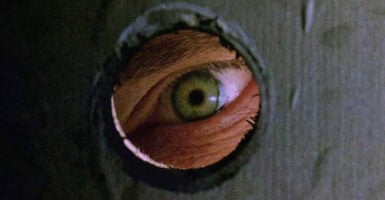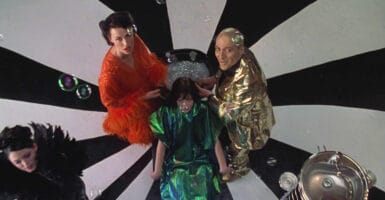South Park Needs To Stop Caring About Continuity, Here’s Why

As South Park approaches its 27th season, fans of the series can only wonder how much further the titular mountain town will continue to expand. One divisive point of discussion among die-hard fans is whether the series should continue to mess with its continuity and canon through serialization, or go back to its original stand-alone episodic format. While I can point to season 18 as a healthy mix that bridged the gap between the old narrative style and the new one, I have to say that the episodic approach is superior.
The Death Of Kenny

South Park, like any other long-running sitcom, has always had a loose sense of continuity. One of the earliest examples of the show’s ever changing formula and format involved the death of Kenny, who was brutally killed off in each episode until the aptly titled season 5 episode, “Kenny Dies.” Though Kenny doesn’t make another appearance until the season 6 finale, “Red Sleigh Down,” there are plots involving his soul possessing and antagonizing Cartman, and everybody is aware that Kenny is, in fact, dead.
When Kenny finally returns to the series in living form, the boys simply shrug it off and move on like nothing happened. Aside from South Park killing off Kenny for a brief period of time, the series remained episodic in nature, and each outing would have little to no influence on its followup.
ManBearPig

Functioning primarily as an effective political satire by its 10th season, South Park would increasingly start to tackle bigger issues with global implications. When we were introduced to the series’ version of Al Gore and his tireless efforts to capture and kill ManBearPig, it was a clear allegory for global warming. Trey Parker and Matt Stone have since revisited this topic, suggesting that they were wrong to poke fun at the former vice president because his concerns were more valid than they initially thought.
This sense of loose continuity allowed South Park’s creators to backpedal a little bit and let their audience know that ManBearPig is actually a true menace to society who’s out to get you. But still, I think this kind of continuity is fine in any animated sitcom because it doesn’t continuously address the topic throughout the series’ run, but rather briefly revisits the topic in season 22.
Randy Lorde

South Park started experimenting with a loosely serialized format in season 18, which was a strong season because it introduced a sense of continuity that kept the series fresh. There were also worthwhile story arcs that quickly became fan-favorite moments. Most notably, Stan Marsh’s father, Randy, revealed that he was living a double life as Lorde (ya, ya, ya!).
Season 19

Season 19 of South Park was the first fully serialized season, and the formula worked (for a minute). Across 10 episodes, we were introduced to PC Principal’s reign of terror, and the town of South Park itself expanded as it became increasingly gentrified to keep up with the times. Season 19 is a solid one because it never lost sight of what made the show so iconic in the first place, but Parker and Stone were brave enough to challenge themselves and fully explore the consequences of each character’s actions.
Trump Ruins Things

But South Park painted itself into a corner in season 20 when Mr. Garrison, one of the show’s best characters, became a Donald Trump surrogate. While this character arc was absolutely hilarious when it was first briefly introduced in season 19, the consequences became clear when Donald Trump unexpectedly won the 2016 election, forcing Garrison to continue acting as president for the next four seasons. Parker and Stone were fully aware of this creative misstep, and acknowledged it with the season 20 finale, “The End of Serialization as We Know It.”
In The End, The Episodic Format Works Better

Recent seasons of South Park offer a mix between the episodic format and the serialized one. If I had to weigh in, I’d say that season 18 offers the best of both worlds because it allows for a substantial amount of character development and long-running gags while allowing fans to watch stand-alone episodes without missing out on any storytelling.
While I’ll admit that South Park has consistently put out great episodes since the beginning, I find myself gravitating to the earlier seasons when the world was just a little smaller and there was less at stake.












